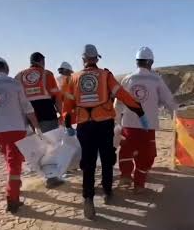
Rail Union Leader Stands Firm Against Changes in Train Operations
Mick Lynch, the general secretary of the Rail, Maritime and Transport (RMT) union, has firmly stated that discussions surrounding “driver-only operation” (DOO) cannot proceed if it remains on the agenda. During a session with the cross-party Transport Select Committee, Lynch emphasised, “We will not accept driver-only operation in any company without a fight. It will never happen while I am general secretary. It will never happen as long as the RMT exists.”
The Rail Delivery Group (RDG) contends that DOO has been safely implemented for nearly 40 years, currently operating on services that carry 55% of passengers. However, Lynch rejected any notion of reducing the number of guards on trains, insisting that talks would not continue if that were a condition.
The ongoing disputes have seen RMT members striking for 20 days over a span of 200 days, from June 21, 2022, to January 7, 2023. These disputes involve Network Rail, a subsidiary of the Department for Transport, alongside over a dozen train operators directed by the government.
Mick Whelan, general secretary of the train drivers’ union, Aslef, echoed Lynch’s sentiments regarding DOO, describing it as “inherently unsafe.” He highlighted alarming statistics, noting a 180% increase in sexual assaults on railway services, and raised concerns about the general safety of the railways when there is insufficient staff presence.
Whelan articulated, “In areas where there are no staff at stations or on trains, we do not believe it is a safe railway for the travelling public.” He argued that comprehensive staffing is essential for operational safety and reiterated that Aslef would not support DOO in any future agreements.
The RDG responded by stating that where trains are adequately equipped, a driver-controlled operation should be the norm. Steve Montgomery, chair of the RDG, informed MPs that around 45% of current services operate under either driver-only or driver-controlled arrangements. He explained that the discussions surrounding these operations are not new and will likely continue.
Montgomery provided an example of operational flexibility, discussing scenarios where delays could be managed by allowing a train to depart on time even if a guard was delayed, with the guard joining the train later. He asserted that this approach would only be implemented on fully equipped trains, balancing punctuality and customer service without compromising safety.










